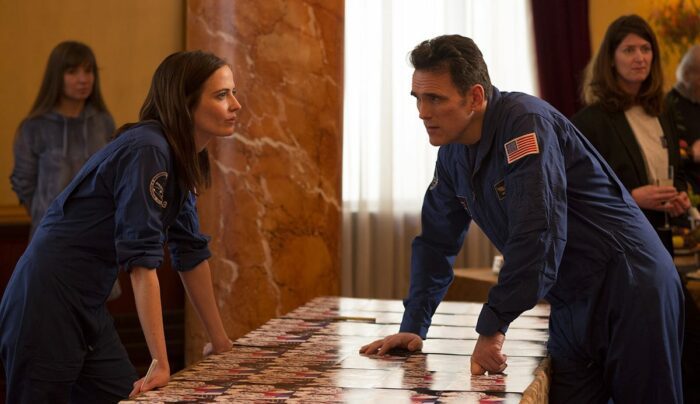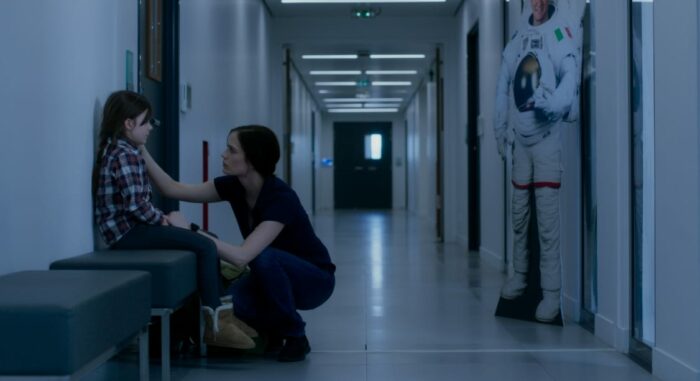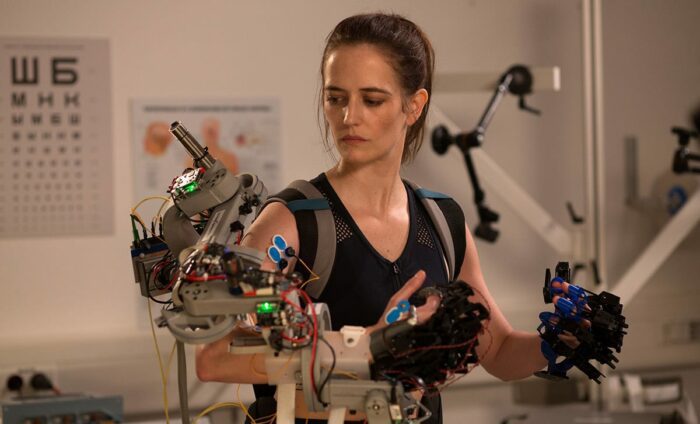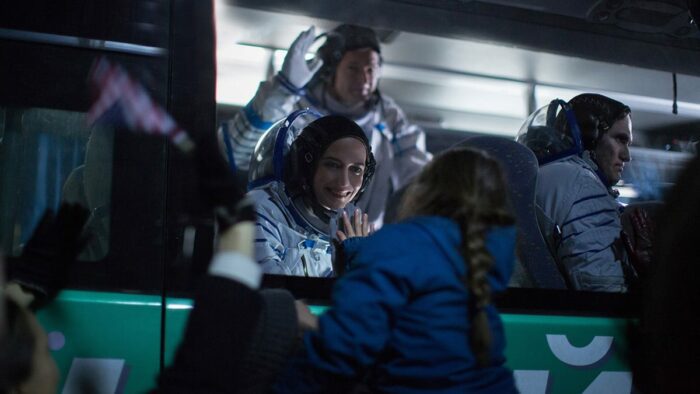There’s no doubt in this writer’s mind that women can do anything a man can when it comes to careers. Women can do anything a man can do and then some. Motivational posters of all shapes and sizes love to say “reach for the stars.” Astronauts make that mantra a reality. Starting with Valentina Tereshkova’s secret solo flight in 1963 (twenty years before our American trivia answer of Sally Ride), 65 of our planet’s 565 spacefarers have been women. They have faced the same physical demands and risks (sometimes moreso) as their male counterparts.
Like the men, many female astronauts have also been parents, beginning with Anna Lee Fisher in 1984. Media coverage of the space program, as well as popular movies like The Right Stuff, Apollo 13, and First Man, love to show the stories of heroic dads leaving their supportive families at home for their missions and patriotic glory. All too often, a woman’s place in those narratives is the worried wife at home turning into a forlorn single parent. Now reverse the genders.
Should that scene look or be any different if it was a woman leaving her children and husband at home for an extended mission in space? It shouldn’t, but you know it does, thanks to antiquated gender role stereotypes of nurturing, superiority, and a woman’s place in the home. Alice Winocour’s new film Proxima starring Eva Green challenges those very stigmas with integrity and grace. With a woman at the center, Proxima shows that such prospects are tremendously more difficult than making a farewell wave all suited up from the gantry before boarding a rocket to flashbulbs and cheers. Arduous struggles and fears lie underneath the gung-ho thumbs-up gestures and placated smiles for the watching press and captive audiences.

French astronaut and engineer Sarah Loreau (Green) is selected to participate in a year-long mission to the International Space Station. She completes a three-person international team with American Mike Shannon (co-headliner Matt Dillon) and Russian Anton Ocheivsky (Aleksey Fateev of Loveless). Sarah has trained her whole career for this prestigious opportunity, but she is also a single mother to an elementary-aged daughter Stella (Zélie Boulant) she shares with her separated ex-husband Thomas (Lars Eidinger of Clouds of Sils Maria). That’s a reward and an anchor at the same time.
The prospect of Sarah spending a year in space completely away from her daughter is ominous, but it’s also the additional months of isolated preparation. This is a case of working parent challenges at an exponential level. This isn’t the kind of job where mom hops out for a 9-to-5 gig and comes home every night to cook dinner and tuck kids to bed. This is road warrior work where the office is eventually 254 miles up in the sky without an easy commute. That requires Sarah to juggle furloughs and a contentious Thomas to step up.

For help beyond childcare and getting one’s affairs in order, Sarah and Thomas enlist the services of child psychologist Wendy Hauer, played by Toni Erdmann’s Sandra Hüller, to help Stella deal with these circumstances. Thanks to an assertive performance from the newcomer Boulant and angles pushed by Hüller, a generous storyline of familial drama unfurls from Alice Winocour (Mustang) and her co-collaborator Jean-Stéphane Bron (The Way I Look at You). Proxima warmly presents the daughter’s perspective on where her head is at. Being her mother’s daughter, there are many things Stella is smart enough to embrace and be proud of. Yet, she’s still a kid who adores her mother and carries poignant commitment and dedication questions that trouble Sarah.

Throughout the film’s buildup to takeoff, Winocour and company were given outstanding access to film Proxima at the European Astronaut Centre outside of Cologne, Germany. That was a production value coup for location managers Franz Runge and Florence Tanguy. Production designer Florian Sanson (Holy Motors) and cinematographer Georges Lechaptois (Planetarium) explore all of the gadgets, apparatuses, and wonders that cement the rigors of the highlighted profession. Eva Green and her castmates show spry enthusiasm within those facilities and challenges.
The astronauts must be cohesive equals and not competitors, and so too the actors. Matt Dillon’s presence is merely that of a male foil of composure and experience next to Eva’s greenhorn. He coaches with matched encouragement and, when necessary, criticizing honesty. Eva Green is still the proper focal point of Proxima, and the actress presents all of the poise necessary to play pioneer and matriarch. This is a personal journey of carrying her weight in one place and her responsibility in the other with detachment looming. As one character says “the hard part is coming back when life goes on without you.”

The dramatic heartstrings of Proxima lie in the realization and reflection of what one will miss from being away and isolated for an extended period of time. Saying goodbye is difficult, no matter who you are. Once again, multiply the usual working parent woes. The emotional pain from the anticipation of departure outweighs the excitement. As a viewer, no matter man or woman, you cannot help but ask yourself if you could do what Sarah Loreau is attempting. Could you uncling from your own children? Could you break promises? Like her, you will wrestle your optimism of adventure and entertain your feelings and fears of what and who you would miss the most. That’s a worthy and powerful tale to witness.



